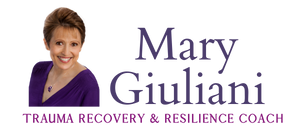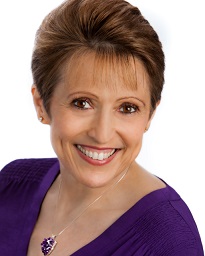How Hidden Trauma Sabotaged My Relationships
Childhood Trauma is Relational Trauma
When I learned that childhood trauma is also known as relational trauma, another piece of my life puzzle fell into place. I finally understood why finding and maintaining close friendships and fulfilling romantic relationships seemed to be so challenging for me.
Until then, I had no idea that I had been navigating my relationships with a nervous system and psyche full of emotional landmines, constantly on the alert and ready to go off at the slightest hint of danger.
Close relationships are stressful for survivors because our brains were wired to expect stress since this was what we experienced growing up with our family members. Understanding the dynamics of relational trauma helped explain how it had sabotaged my past romantic relationships with fellow survivors.
When former partners, who were also survivors, and I attempted to connect in a romantic relationship, our unhealed relational trauma issues would inevitably get triggered. Instead of understanding that 90% of our conflicts were due to triggers from unresolved childhood trauma issues and not the presenting problem, we blamed the problem on ourselves or each other. But we never got to the root cause of why we kept fighting about the same issues.
After repeatedly running up against the same problems, we became convinced that our conflicts were insurmountable and that the only solution was to give up on the relationship.
What I didn’t understand until I learned I had C-PTSD is that when we’re triggered, our unhealed trauma replays past bodily sensations and thoughts, making it impossible to be in the present. When you’re unaware you have C-PTSD, you won’t realize you’ve been triggered into a state from your past. It’s as if there’s a gaslighting effect going on since you really believe what you’re feeling is solely related to the conflict in the relationship you’re in, even though it’s not.
Thankfully today, I’m fully aware of when a relational trauma trigger hits. Instead of blaming myself or my partner, I can slow down and be more mindful of my feelings and where the trigger is coming from. I’m also aware that it’s in the relationship’s best interest for me to wait until my nervous system has calmed down before talking to my spouse about a conflict.
The 3 Reasons You May Struggle With Close Relationships
1. Holding A (conscious or unconscious) “People Aren’t Safe,” Worldview
Learning that childhood trauma is relational trauma also helped explain why I struggled so much with social anxiety. For over a decade of my childhood, I witnessed an out-of-control alcoholic mom who regularly shamed my dad and frequently shamed me. I also experienced walking through life as an overweight child and later as a severely obese lesbian in a fatphobic and homophobic culture.
What did all of these experiences have in common? People who were hurting, judging, or condemning me. This taught me that people weren’t safe since they were the source of my deepest pain. This insight helped me understand why for the first ten years of my recovery in AA, the only people I hung out with were lesbians who were also in recovery with alcohol, drugs, and food. They were the only people I felt safe with since they were just like me. How could they judge me? They were me!
With this new awareness, I saw that my “”People aren’t safe” worldview had significantly impacted my ability to connect with new people. I’ve made a lot of progress in this area, yet it’s often still challenging to feel safe being open about my history of trauma, obesity, and addiction with people I don’t know well.
Since I wasn’t aware of having a “people aren’t safe””worldview until a few years ago, I couldn’t understand why I had hardly any close friends. It baffled me because I really like people and love having fun with friends. Once I feel safe, I love connecting with people.
Today I’m aware that when I don’t feel safe with someone, a stress response gets triggered in my body, making me anxious and uncomfortable. As a result, I feel the impulse to distance myself or leave for self-protection. Understanding how I’d adopted this worldview and how it has impacted my social interactions and relationships has been extremely helpful.
Now that I have this awareness, I’m much more mindful when I start assuming that people aren’t safe. When it comes up, I challenge my assumption and ask if it’s true or if it’s just an old default stress-response program running.
Now when I attend social functions, I set goals designed to foster corrective relational experiences to help rewire my brain and rewrite my narrative to “most people are safe enough.”As a result, I’ve experienced significant progress in feeling safe and connected with people I would never have felt safe with before.
2. Being Sabotaged By Emotional Flashbacks
While reading Complex PTSD: From Surviving to Thriving, I learned that emotional flashbacks were a common C-PTSD symptom. At first, I found it hard to wrap my mind around what an emotional flashback was. I even questioned whether I’d ever experienced one. When I thought about it, I hadn’t recalled having any dramatic or over-the-top emotional experiences related to what happened during my childhood.
Yet as I learned more about emotional flashbacks, I realized they don’t need to be over the top and dramatic. Before learning about C-PTSD, I’d associated the word flashback with movie scenes in which a combat veteran with PTSD hears a car backfire and has an intense emotional reaction or dives for cover.
In contrast, a C-PTSD emotional flashback can be a noticeable shift in your mood from being calm to becoming anxious, agitated, overwhelmed, sad, ashamed, or panicked. It can range from subtle to more pronounced and last for various lengths of time.
Examples of My Emotional Flashbacks
Since I had a hard time understanding what emotional flashbacks were when I first learned about them, I thought it would be helpful to share some examples of what my emotional flashbacks feel like and what contexts typically trigger them. The good news is that since I’ve been working on healing my trauma for many years, most of these flashbacks are mild, and some are completely gone.
However, occasionally I can still be caught off guard and thrown into a significant emotional flashback. I’ve found that just reminding myself that I’m experiencing an emotional flashback helps me calm down quickly and allows me to practice mindfulness as I look for ways to get regulated. Now that I understand the nature of emotional flashbacks, I can use them as an opportunity for healing.
I go over how I’ve incorporated this healing process into my life in Part III of my book:
It’s Not About Food, Drugs, or Alcohol: It’s About Healing Complex PTSD.
Below are the most common relationship-based emotional flashbacks I’ve experienced and their typical triggers.
Social anxiety:
Social anxiety has been challenging, especially when it involves small talk at parties. I frequently feel the impulse to leave social events soon after I’ve arrived. I also tend to be drawn to overindulging with food or caffeine at parties to cope with my anxiety. I now know this is an emotional flashback to my “people aren’t safe” worldview. I’ve had some significant breakthroughs in my ability to feel safe with people, and, as a result, my social anxiety has significantly decreased.
New relationships:
I tend to get triggered when a new person enters my life, and there appears to be the possibility of a close friendship. My discomfort can range from mild to extreme until I assess how safe I feel about their emotional health. If I get the sense that they’re not emotionally healthy, I know I need to be careful about whether or not to allow them in my life. This trigger goes back to being shamed, blamed, and drained by my mother.
A big part of my healing is recognizing that now that I’m an adult, I can protect myself by setting expectations and healthy boundaries in my relationships. If someone isn’t healthy for me or isn’t willing to respect my boundaries, I know I don’t have to include them in my life.
I’m also aware that I may inadvertently assume that someone is unsafe without any evidence to support my concerns due to my trauma history. For this reason, I do my best to stay mindful of this possibility while deciding whether or not to allow a new person into my life.
Conflict:
Relational conflict, in general, is triggering for me, given the chronic conflict I witnessed between my parents. But I get especially triggered when people attempt to manipulate me with shame or guilt, are overly needy, judgmental, or get angry with me. I can also become triggered by witnessing people having emotionally or physically abusive arguments, a parent shaming a child, couples fighting in front of children, or excessively angry people.
These scenarios include in person, in movies, or on TV shows. This flashback goes back to witnessing my mom raging at my dad, being shamed by my mom, the church, and school bullies, and tolerating my mom’s chronic negativity and neediness.
Fear of Abandonment:
The most intense emotional flashback I experience is when I fear being abandoned in my close romantic relationship. I find that it’s extremely tough for me to calm down after a conflict or fight with my partner until we resolve our differences. Even using the numbing strategy of food and caffeine can’t quell my distress when it comes to my most important attachment relationship being threatened.
Now that I understand the nature of emotional flashbacks and complex trauma, I see that my fear of abandonment is my hottest trigger. This is connected to the overwhelming pain of the chronic emotional abandonment I experienced as a child.
Since I now understand that this is a flashback, I do my best to use it as an opportunity for my healing. Instead of staying in a reactive state, I try to calm myself down by bringing in my wise inner parent to provide comforting, compassionate, reassuring support to my scared, hurting inner child.
Also, given that I’ve shared with my partner, Maria, the nature of my C-PTSD and what is most helpful when I’m triggered, she’s very understanding and compassionate, which is extremely regulating for me.
3. Difficulty Leaving Unhealthy or Unfulfilling Relationships
Another common aspect of relational trauma is that many survivors find it difficult to leave unhealthy, abusive, or unfulfilling romantic, platonic, or work relationships. When I got into recovery with codependency, I did a lot of work on healing my ability to choose healthy relationships and, when necessary, leave unhealthy ones.
Interestingly, if parents stay together despite having an unfulfilling, toxic, or abusive relationship, their children learn that this is how relationships are supposed to work. As a result, they’re automatically drawn or attracted to partners and friends with similar dysfunctional relational styles. This is due to humans feeling drawn to people who feel similar to those they experienced growing up.
Relational Trauma Is Treatable & You Can Heal
Healing the root cause of why we’re drawn to choose or tolerate unhealthy or unfulfilling relationships requires us to resolve our codependency and relational trauma. The good news is healing relational trauma is possible, and I’ve shared all the steps I’ve taken to do so throughout my book,

It’s Not About Food, Drugs, or Alcohol: It’s About Healing Complex PTSD
Engaging in Healthy Relationships Is the Best Way to Stay Regulated
Countless studies show that the best way for human beings to regulate their emotions and nervous system is to engage in healthy, close relationships. This is known as co-regulation. Unfortunately, intimate relationships often trigger stress responses in survivors, making them want to avoid close relationships.
This is why many survivors choose relationships with dogs, cats, or other pets versus people because animals are the safer alternative. Its well documented that dogs and cats can be very therapeutic because of the deep soothing connection they provide for their owners. Although I love my cats dearly and am all for connecting with pets, the deepest level of trauma-healing and connection has come through moving through the ups and downs of my relationship with my partner Maria and my close friends.
Although the journey of healing relational trauma hasn’t been easy and has required me to stretch outside my comfort zone, the fruits of my labor continue to pay dividends every day in the wonderful connections I have with my friends and partner.
I share this because it’s important to know that you can experience profound healing in your capacity to be in intimate relationships through healing relational trauma.
I go into extensive detail on how to heal from relational trauma so you can enjoy the soothing comfort and connection with safe friends and/or a romantic partner in my book:
It’s Not About Food, Drugs, or Alcohol: It’s About Healing Complex PTSD.
I also offer individual complex trauma and resilience coaching, to support healing relational trauma.
Here’s to reconnecting with yourself and others by healing relational trauma,
Mary



